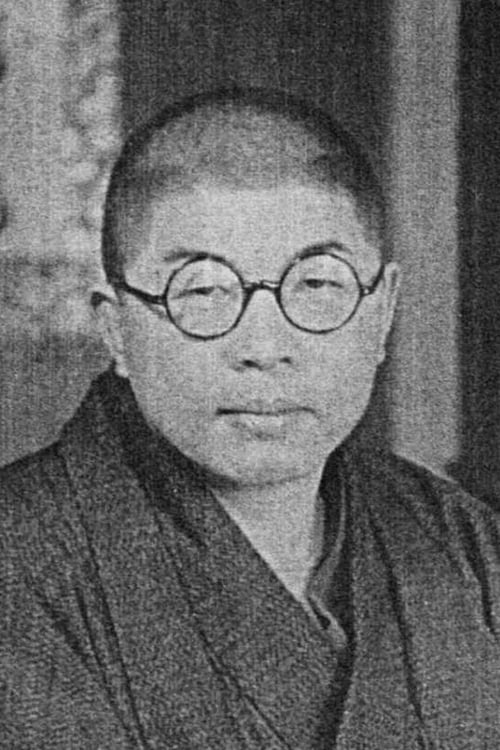Yasutaro Yagi
Nascimento : 1903-02-03, Gunma Prefecture, Japan
Morte : 1987-09-08
História
Yasutarō Yagi (3 February 1903 – 8 September 1987) was a Japanese screenwriter, mostly famous for his adaptations of literary works for the director Tomu Uchida in the 1930s, such as Jinsei gekijō and Kagirinaki zenshin, and for his collaborations with leftist filmmakers such as Kaneto Shindo and Tadashi Imai in the postwar period. He served as president of the Japan Screenwriters Guild.
Wikipedia contributors. "Yasutarō Yagi." Wikipedia, The Free Encyclopedia. Wikipedia, The Free Encyclopedia, 24 Jan. 2021. Web. 3 Nov. 2021.

Screenplay
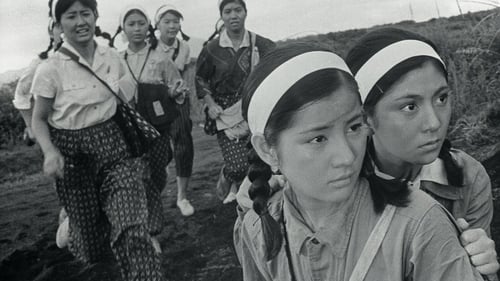
Writer
In 1943, critical developments in the Pacific War have placed Japan at a disadvantage, although the fiery breaths of war hadn't yet reached Okinawa Normal School for women. Nothing seemed the least bit out of the ordinary, as Kazuko and her friends enjoyed a day of sports. A year later the war takes a devastating turn, as US forces plan an amphibious attack known as "Operation Iceberg" on the Ryukyu island.
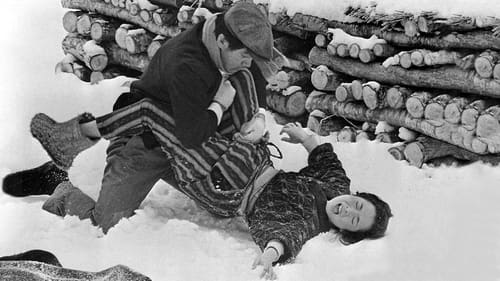
Screenplay
A sake factory worker on holiday returns to his home town, where he rapes the wife of one of his co-workers in the forest. The other man returns home to find his wife changed and suspects that she has been unfaithful.

Screenplay
Handsome young Katsuta tries to follow the yakuza code, but even his boss doesn't believe in it. Diamond Fuyu is less ethical, and allows the idiotic Tetsu to trick a schoolgirl he fancies, Hanako, into a type of bonded prostitution. Because of gang conflict, the Izu family (to whom Katsuta belongs) has their last gambling den taken over, and he seeks revenge. This brings him back into contact with a former lover who is also a card trickster - she is also Diamond Fuyu's sister, and is now married to Okaru-Hachi, who has mastered a clever card cheating trick called Okaru, which involves the deft use of mirrors.

Screenplay
Japanese drama.

Original Story
Japanese drama.

Writer
A boxing melodrama. Two friends become boxers and begin training for the championship. These two boys eventually face each other in the ring.

Screenplay
Drama which shows the struggle of Fumiko, a female teacher, at work and at home.

Writer
An ageing fishing boat, Dai-go Fukuryu Maru ("Lucky Dragon No. 5") sets out from the port of Yaizu in Shizuoka Prefecture. It travels around the Pacific line fishing. While the ship is near Bikini Atoll, the ship's navigator sees a flash. All the crew come up to watch. They realize it is an atomic explosion, but take time to clear their fishing gear. A short time later, grey ash starts to fall on the ship. When the ship returns to port the sailors have been burned brown. They unload the fish, which are then transported away. They visit the local doctor and then go to Tokyo for an examination. It turns out they are all highly radioactive. Their symptoms become worse, and the contaminated fish causes a panic.

Writer
A touching story depicting the harsh lives of farmers in Kasumigaura. An attempt to start a fishery business to revive an ailing farming community creates friction amongst the proud residents.

Screenplay
A sophisticated comedy about love games between men and women that arise from an intentionally dropped train ticket.

Screenplay
A conflict between two yakuza families in Tokyo, the Izus and the Yoshidas, has recently broken out. When an Izu underling starts a fight with a Yoshida man, Fuyu, the Izu family sends Tsuruta, a senior member of the clan, to make a personal apology to Fuyu. Tsuruta discovers that the woman he is in love with is Fuyu's sister, Tatsuko. Tsuruta ends up gambling with a swindler, who is in fact Tatsuko's husband. (The general plot of the film was re-used for Seijun Suzuki's Kanto Wanderer).
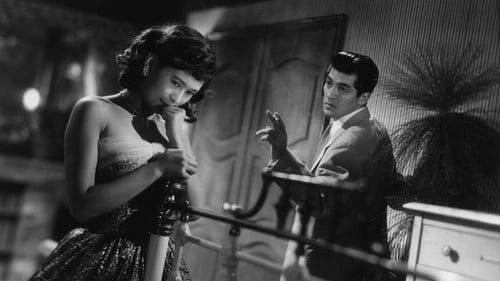
Screenplay
Nobuko is a widow who lives with her daughter-in-law Tamiko and her brother Junjiro. The family's gatekeeper, Komatsu, is attracted to Tamiko, but she is encouraged to marry a doctor and he is afraid to tell her his feelings.

Screenplay
Japanese film.

Screenplay
Based on Philippines war experiences. Military doctor Leutenant Hanada deserts with a local girl. The officer in command orders Lieutenant Uji to shoot Hanada. Uji takes a sharpshooter called Takagi and tracks him. At first Uji cannot forgive Hanada but as Uji is isolated from the main force he too starts to think of desertion.

Executive Producer
Based on Philippines war experiences. Military doctor Leutenant Hanada deserts with a local girl. The officer in command orders Lieutenant Uji to shoot Hanada. Uji takes a sharpshooter called Takagi and tracks him. At first Uji cannot forgive Hanada but as Uji is isolated from the main force he too starts to think of desertion.

Writer
The film shows the bombing of Hiroshima and the horrific aftermath following the detonation of an atomic bomb on humans for the first time in history.
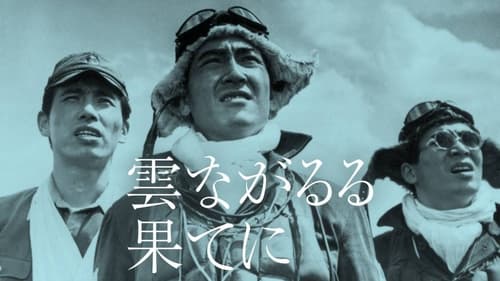
Screenplay
A movie that depicts the tragic fate of many Yokaren flight-academy pilots.

Screenplay
A story of a passionate teacher and his great effort for the children in a poor village.

Screenplay
Ebihara is a budding novelist entangled in a complicated web of relationships with three women from three different generations: Kazue, a coquettish teenage war orphan who tries to offer herself for money but is instead taken in by Ebihara, Koyabu, a middle-aged woman who has spent much of her life as the kept woman of a wealthy man, and Teruko, the modest daughter of Ebihara's former teacher who comes to rely on him after the death of her father.

Script
This film is strongly anti-war film. The film is based on the collection of writings by Japanese student soldiers who died during World War II. The film is located to Burma. It shows the everyday problems of soldiers in contrast of their ideas and the cynicism of their commanders. Soldiers are also victims of military bullying by their commanders.

Screenplay
An attempt is made to suppress a journalist's investigation of collusion between a rural police chief and the local gangster bosses.

Writer
1948 Japanese drama film.

Story
Kôfuku eno shôtai - Invitation to happiness

Writer
Kôfuku eno shôtai - Invitation to happiness

Screenplay
Stalwart soldiers of the Japanese Empire – Japanese and Korean alike – stand in defense of a military outpost threatened by "bandits."

Screenplay
Drama about a young nurse who falls in love with a disabled soldier, and based a true story.

Writer
The year is 1936. Ôhinata-mura was a very poor village between deep valleys. Soncho, the village head is trying to collect the village taxes from the villagers but he knows full well that no one can afford to pay the village tax which has been unpaid for years...

Screenplay
A female doctor's story of her life in an isolated leper colony.

Screenplay
Okumura Ioko story directed by Shiro Toyoda

Screenplay
The film was produced during Second Sino-Japanese War, before the Pearl Harbor Attack in 1941. The film mainly concerns the training of newly-recruited pilots and their daily life, then their subsequent fighting experiences in China. Army supported the production, providing all the authentic airplanes, training and actual actions. They even provided the older biplanes disguised as Chinese fighter planes. Obinata plays the trainer-turned-combat-leader, who is passionate and cool at the same time. All his boys love him, of course. The film is not as intense, full of sugar-coated camaraderie, until young pilots are killed in action one by one. Last twenty minutes are fairly grim, as the message of self-sacrifice is heard loud and clear.
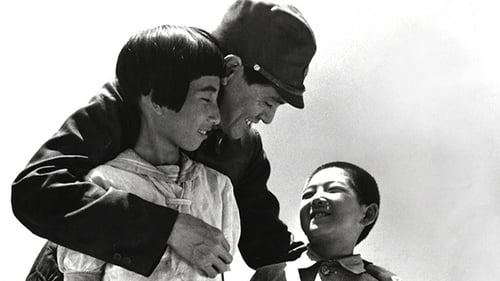
Screenplay
A film based on the memoir of a 4th grade student who received the grand prize in a writing contest sponsored by Gyeongseong Daily. A boy, whose parents sell brass spoons on the street while his grandmother is sick in bed, never has money for his tuition. Fortunately, his aunt offers to pay for his tuition and his classmates raising funds for him. To top it all off, his parents return a few days later to promise him that they will pay for his tuition the next time.
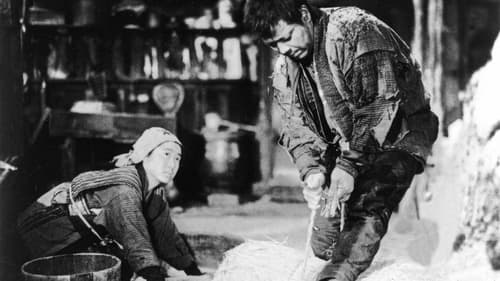
Screenplay
Kanji is a poor peasant widower who struggles to earn a living for his daughter and himself and to pay off his father-in-law's debts.

Screenplay
Venice Film Festival 1939

A lost film considered one of Japan's first Tokusatsu films. The effects were done by Fuminori Ohashi, who claims to have been a modeling consultant for Godzilla 1954 (this claim is disputed by modeler Eizo Kaimai and art staff member Shinji Hiruma). The film's synopsis published in the March 1938 issue of Kinema Junpo indicates that the "Kong" featured in this film was not actually a giant monster.

Writer
One of Uchida’s early sound films, Unending Advance is based on a curious story by Yasujiro Ozu, in which an examination of the quotidian problems of a middle-aged salaryman and his family segues into an idyllic dream of an implausible future. The surviving print, although incomplete, offers an essential glimpse into Uchida’s prewar period, when he was associated more with realist dramas than with the period films that dominated his work after the war.

Writer
Two brothers run a factory canning crabs. The elder brother Kotaro is righteous and insists on honesty. The younger brother is fixated on money. They are polar opposites. When a boat sails out looking for crab and does not return one day the brothers begin to argue over how to run their facility. They had just received a large order from a foreign country and had obtained a loan from a lender that needed to be repaid.

Adaptation

Screenplay
Directed by Tomotaka Tasaka.
